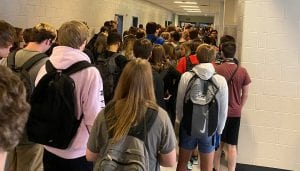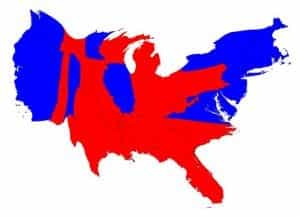 What is the Electoral College?
What is the Electoral College?
In 2016, more than 138 million people voted in the general election, but only 538 of them directly voted for president and vice president.1 The reason that both of these statements can be true is the existence of the Electoral College. The Constitution says that rather than voting directly for the president and vice president, citizens vote for a panel of “electors” associated with each candidate in each state. The Electoral College is the name given to this group of 538 individuals spread out across the 50 states.
Each state receives a number of electors that is equal to the state’s total number of representatives and senators in Congress, with the minimum being three (in Alaska and North Dakota, for example). More populous states have more electors, such as Texas (38) and California (55). There are 538 electoral votes in total, representing all 50 states and Washington, D.C. In order to win the presidential election, a candidate must garner a majority of the electoral votes (at least 270). Electors usually follow the outcome of the popular vote in their state, although “faithless electors” do emerge occasionally since there is no federal law mandating that electors obey the statewide popular vote. At present, 29 states and Washington, D.C., have laws that require electors to vote in accordance with the popular vote in their state or district.2
To hear federal lawmakers’ opinions about the Electoral College, visit A Starting Point’s Electoral College resource.
You Can Win Even When You “Lose”
So is the Electoral College outdated or still relevant today? In the Electoral College system, it is possible for a candidate to win a presidential election even if they do not receive the majority of the nationwide popular vote. This has happened five times in U.S. history, in 1824, 1876, 1888, 2000, and 2016.3 The fact that this phenomenon has occurred twice in the past two decades has led to increased criticisms of the Electoral College. Some Americans want to abolish the Electoral College altogether, arguing that if such a system was ever needed, that time has passed. They believe that direct popular vote should determine the winner of the presidential election, just as it does for other political offices. Advocates for abolishing the Electoral College often point to the 17th Amendment, which made senators elected by a direct popular vote rather than by a vote in their state legislature.4
However, supporters believe reasons to keep the Electoral College include that the system still serves a valuable purpose: to make sure that small states matter. They note that without the Electoral College, presidential candidates would focus only on winning the vote in high-population states, such as California, New York, and Texas.5 There are also critics of the Electoral College who argue that abolishing the system is not only unnecessary, but would require an amendment to the Constitution—an amendment that would be unlikely to pass due to a lack of support from smaller states. These critics have put forward a number of potential reforms that would require changes to state laws, rather than constitutional amendments. The two most commonly proposed reforms are proportional electors and the National Popular Vote Interstate Compact (NPVIC).6
Two Models for Reform
Currently, most states award electors on the basis of a winner-take-all model, in which the candidate who receives the most votes statewide receives all of the available electoral votes. However, Maine (four electors) and Nebraska (five electors) use a proportional representation system, in which there are two at-large electors who vote for the winner of the statewide popular vote, as well as district electors (two in Maine, three in Nebraska) who vote for the winner of the popular vote in each congressional district. Therefore, the presidential candidates compete in each district. For example, if Candidate A receives 60 percent of the popular vote in Nebraska but only had the most votes in two of its three districts, Candidate A receives four electoral votes from Nebraska while Candidate B still receives one. Proponents of this proportional representation system argue that it preserves the spirit of the Electoral College by keeping smaller states relevant, but it better represents the will of the different populations in each state.7
Alternatively, some states have agreed to take part in the NPVIC. Rather than binding electors to the winner of the statewide popular vote, the NPVIC circumvents the Electoral College by binding electors to the winner of the nationwide popular vote, regardless of whether or not the people in their state voted for that candidate. Since the NPVIC was established in 2006, 15 states and Washington, D.C., have signed on, although the pact has been suspended in Colorado pending review. Another five states are considering signing on to the NPVIC. If Colorado and those five states join the pact, the electoral vote count of NPVIC states would be 260. However, the NPVIC stipulates that the agreement does not go into effect until its members represent at least 270 electoral votes.8
If The Electoral College Fails: The Implications For 2020 Election
One of the most peculiar aspects of the Electoral College is that there is an even number of votes, making a 269-269 tie possible. There are arguments over whether this is a flaw or a feature; regardless, a tie can happen—and did happen in 1800 between Thomas Jefferson and Aaron Burr.9 In the event of a tie, the vote for president goes to the House of Representatives and the vote for vice president goes to the Senate. In the House, each state is given one vote; in the Senate, each member is given one vote. The votes are carried out by the newly elected Congress in January. If Democrats take control of the Senate and/or expand their majority in the House, they could vote for former Vice President Joe Biden and Senator Kamala Harris, D-Calif. However, because the House vote is one vote per state rather than one vote per member, President Donald Trump could still win reelection since there are more states with a Republican-majority delegation. This system also leads to strange possibilities such as a Biden/Pence or Trump/Harris White House.10
In reality, a tie is extraordinarily unlikely. What is more likely is a situation in which neither candidate receives 270 votes, also known as a “contingent” election. Normally, this would be virtually impossible, since with only two major candidates to choose from, one candidate’s loss is the other’s gain. However, states are required to officially certify their 2020 election results by the end of December. With concerns being raised over mail-in voting systems, President Trump’s refusal to commit to accepting the results should he lose, and various court procedures that could hold up the 2020 election results, the possibility that one or more states could fail to certify their election results has become more likely. In the event that neither Biden nor President Trump has the required 270 electoral votes, the 2020 election would be sent to Congress just as it would be in the event of a tie. Congress has had to decide the election outcome on only two occasions, in 1800 and in 1824, so this situation is unlikely but not impossible.11
Discussion Questions
- Do you believe the Electoral College is necessary/a good idea? Or do you believe that the nationwide popular vote should determine the president and vice president?
- If Congress or the states wanted to reform the Electoral College, which change, if any, would you favor?
- Abolish the Electoral College through a constitutional amendment
- Change state laws to award electoral votes proportionally
- Join the NPVIC and award all electoral votes to the winner of the national popular vote
- Keep the Electoral College as it is
- In the 2000 election, the race was so close that it came down to one state: Florida. After weeks of delay and confusion, a pivotal case came before the Supreme Court; the Court’s ruling ultimately led to George W. Bush being declared the winner in Florida and therefore the winner of the presidential election. If a highly contested election were to occur again, do you think the decision should be left to the courts or to the House?
- The most common defense of the Electoral College is that it allows states with small populations to play a more significant role in the election, making the process more fair. However, some have pushed back on the fairness argument by comparing states’ electoral vote totals to their relative populations. For example, California has 55 electoral votes and a voting population of 30.5 million people, meaning that each voter accounts for 0.00018 percent of the electoral votes. In contrast, in Wyoming, with its three electoral votes and voting population of 443,000, each voter accounts for 0.00067 percent of the electoral votes. While neither of those numbers is particularly large, it nevertheless means that a vote in Wyoming impacts the final Electoral College total nearly four times as much as a vote in California. Is the Electoral College still fair? Is it still valuable to preserve this system in order to prevent high-population areas, such as cities and the coasts, from overshadowing more rural areas?
- In some elections, when no candidate achieves a majority, the election is re-run later in what is called a “run-off” election. In a run-off, the field of candidates is narrowed on the basis of the level of support they received in the first round of voting. Other elections use ranked-choice voting, a process that allows voters to order their preferences. If the voter’s preferred candidate does not reach a certain threshold of support, the voter’s support is given to their second choice until, finally, all voters have given their support to one of two candidates. Currently, no provisions exist for such a process in presidential elections. Do you think that one or both of these systems should be put in place? Is there another alternative that would make the process more fair?
For more of our election coverage, see our recent posts on Political Violence and the 2020 Election, The Supreme Court Fight and The Election, and Election 2020: Guides for Discussing the Debates.
Sources
[1] https://guides.libraries.psu.edu/post-election-2016/voter-turnout
[2] http://archive.fairvote.org/?page=967
[3] https://www.history.com/news/presidents-electoral-college-popular-vote
[4] https://www.courierpress.com/story/opinion/2019/07/18/letter-electoral-college-must-go/1773483001/
[5] http://hnn.us/articles/474.html
[6] https://calmatters.org/commentary/my-turn/2020/09/abolish-the-electoral-college-or-award-electors-on-a-proportional-basis/
[7] Ibid.
[8] https://www.nationalpopularvote.com/
[9] https://time.com/4558510/electoral-college-history-slavery/
[10] https://slate.com/news-and-politics/2020/09/electoral-college-tie-democrats.html
[11] https://apnews.com/article/election-2020-inaugurations-archive-election-recounts-elections-fa1f88c9ff0681bd78b147137c09b3d9
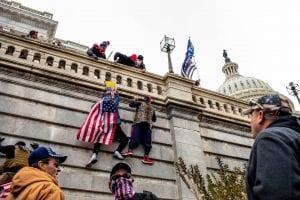 On January 6, 2021, Congress convened to certify the Electoral College results of the 2020 presidential election and to affirm the victory of President-elect Joe Biden. Although there has been no evidence of voter fraud, a group of Republican legislators planned to object to the certification process, saying they wanted Congress first to create an electoral commission to investigate the results in certain states. This objection would not stop the certification, only delay it.1
On January 6, 2021, Congress convened to certify the Electoral College results of the 2020 presidential election and to affirm the victory of President-elect Joe Biden. Although there has been no evidence of voter fraud, a group of Republican legislators planned to object to the certification process, saying they wanted Congress first to create an electoral commission to investigate the results in certain states. This objection would not stop the certification, only delay it.1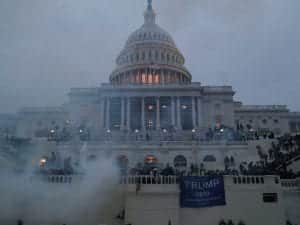
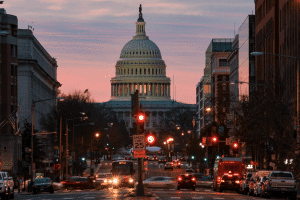 The 117th Congress was sworn in on January 3, 2021.1 This is the most diverse Congress ever,2 with a record number of women and LGBTQ members, a slim Democratic majority in the House, and a Senate that is still up for grabs due to runoff elections taking place this week in Georgia.3
The 117th Congress was sworn in on January 3, 2021.1 This is the most diverse Congress ever,2 with a record number of women and LGBTQ members, a slim Democratic majority in the House, and a Senate that is still up for grabs due to runoff elections taking place this week in Georgia.3
 As journalists, historians, and political commentators reflect on the administration of outgoing President Donald Trump, one word keeps coming up: norms. To his critics, this is cause for concern. But President Trump’s supporters sometimes see his norm-breaking actions as efforts to change the political culture of Washington. Here, we will offer definitions and examples of political norms, rules, and traditions that President Trump has broken, consider the possible consequences, and ask what, if anything, should be done to reaffirm those norms.
As journalists, historians, and political commentators reflect on the administration of outgoing President Donald Trump, one word keeps coming up: norms. To his critics, this is cause for concern. But President Trump’s supporters sometimes see his norm-breaking actions as efforts to change the political culture of Washington. Here, we will offer definitions and examples of political norms, rules, and traditions that President Trump has broken, consider the possible consequences, and ask what, if anything, should be done to reaffirm those norms.
 Most Republicans in the House of Representatives signed letters of support for a lawsuit brought by the state of Texas, although Senate Republicans did not.11 Some Trump supporters have latched on to the president’s defiance as well. They note that in the 2000 presidential election, Vice President Al Gore waited to concede to Governor George W. Bush until December 13, the day after the Supreme Court ordered a stop to the recount in Florida. On December 12, groups supporting President Trump, including the male chauvinist organization Proud Boys, clashed with protesters in Washington, D.C.; at least four people were stabbed (the political allegiances of both the stabbing suspect and the victims is presently unknown).12 Several Black churches were also targeted and vandalized.13
Most Republicans in the House of Representatives signed letters of support for a lawsuit brought by the state of Texas, although Senate Republicans did not.11 Some Trump supporters have latched on to the president’s defiance as well. They note that in the 2000 presidential election, Vice President Al Gore waited to concede to Governor George W. Bush until December 13, the day after the Supreme Court ordered a stop to the recount in Florida. On December 12, groups supporting President Trump, including the male chauvinist organization Proud Boys, clashed with protesters in Washington, D.C.; at least four people were stabbed (the political allegiances of both the stabbing suspect and the victims is presently unknown).12 Several Black churches were also targeted and vandalized.13 Public health officials are offering good long-term news about the prospects of making a COVID-19 vaccine widely available during the first half of next year,1 but they are also cautioning Americans that this winter could be very “rough.”2 In addition to having worries about illness, death, and social isolation, many people are also feeling significant financial pain.3
Public health officials are offering good long-term news about the prospects of making a COVID-19 vaccine widely available during the first half of next year,1 but they are also cautioning Americans that this winter could be very “rough.”2 In addition to having worries about illness, death, and social isolation, many people are also feeling significant financial pain.3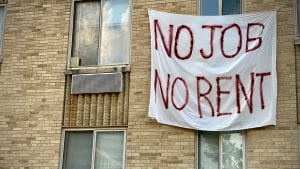
 What is the Electoral College?
What is the Electoral College? 
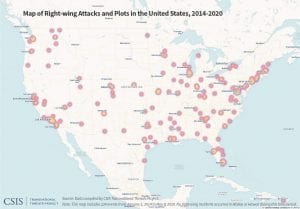
 There are three presidential debates scheduled for September 29, October 15, and October 22, as well as a vice presidential debate taking place on October 7. For many voters, the debates are the best chance to see the differences between the candidates as they decide how to cast their vote in November. Campaigns put a lot of effort into the debates; getting a candidate ready for these events often requires weeks of preparation.
There are three presidential debates scheduled for September 29, October 15, and October 22, as well as a vice presidential debate taking place on October 7. For many voters, the debates are the best chance to see the differences between the candidates as they decide how to cast their vote in November. Campaigns put a lot of effort into the debates; getting a candidate ready for these events often requires weeks of preparation.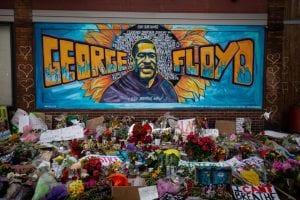 This summer has been more dramatic and more tumultuous than any other in recent memory. To help teachers and students explore key issues from this summer, we have done a series of summer round-up articles including developments related to the
This summer has been more dramatic and more tumultuous than any other in recent memory. To help teachers and students explore key issues from this summer, we have done a series of summer round-up articles including developments related to the 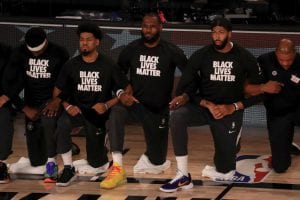
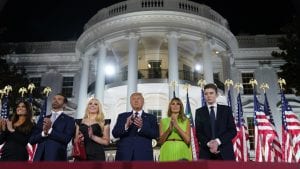
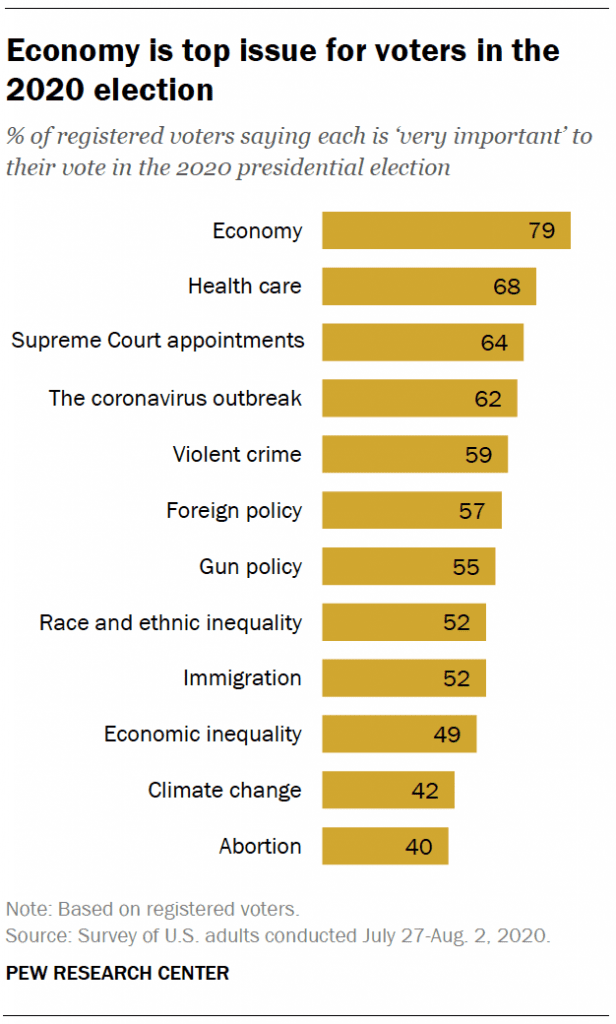
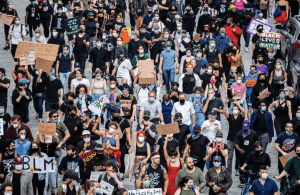 The summer of 2020 has been unlike any other. Schools across the country did not finish the end of the academic year in person, and many will not be seeing students in person once again this fall. Major events have been canceled or moved online, and we are in the midst of a presidential election that looks quite different from previous elections. On top of all the changes brought by COVID-19, the killing of George Floyd at the hands of police in May sparked protests across the country and around the world. In our first blog posts of the 2020-2021 school year, we will look back at key social and political issues from the summer so we may look ahead to the November election and beyond.
The summer of 2020 has been unlike any other. Schools across the country did not finish the end of the academic year in person, and many will not be seeing students in person once again this fall. Major events have been canceled or moved online, and we are in the midst of a presidential election that looks quite different from previous elections. On top of all the changes brought by COVID-19, the killing of George Floyd at the hands of police in May sparked protests across the country and around the world. In our first blog posts of the 2020-2021 school year, we will look back at key social and political issues from the summer so we may look ahead to the November election and beyond.